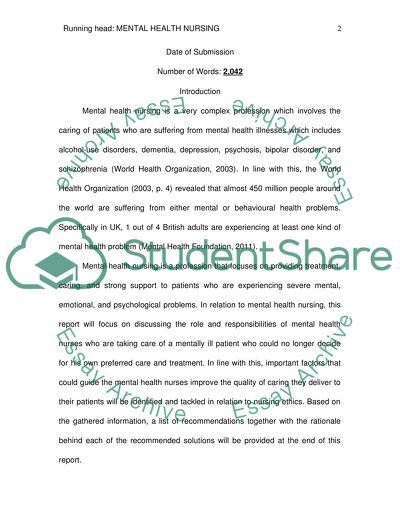Cite this document
(“The nurse as a professional (mental health) Essay - 1”, n.d.)
Retrieved from https://studentshare.org/environmental-studies/1406485-the-nurse-as-a-professional-mental-health
Retrieved from https://studentshare.org/environmental-studies/1406485-the-nurse-as-a-professional-mental-health
(The Nurse As a Professional (mental Health) Essay - 1)
https://studentshare.org/environmental-studies/1406485-the-nurse-as-a-professional-mental-health.
https://studentshare.org/environmental-studies/1406485-the-nurse-as-a-professional-mental-health.
“The Nurse As a Professional (mental Health) Essay - 1”, n.d. https://studentshare.org/environmental-studies/1406485-the-nurse-as-a-professional-mental-health.


